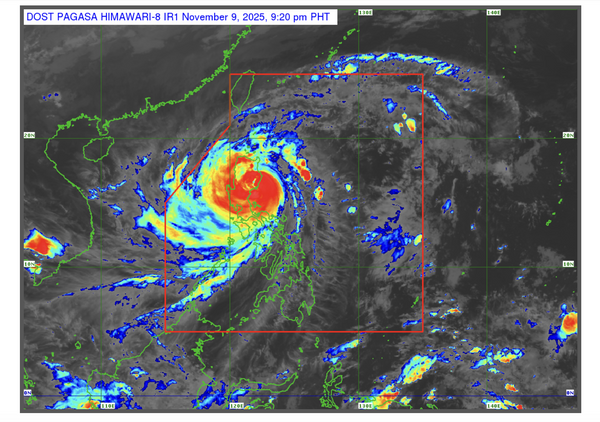
It occurred to me recently that I’ve been playing video games for more than 40 years. Sitting on a bus home that evening, I tried to recall my actual real first memories of them. All I could catch were odd scraps. Seeing Pong on a neighbour’s TV, courtesy of a Grandstand 2000 console – I guess that would have been the late 1970s. Playing Space Invaders somewhere – in a pub? A chippy? I remember the first alien laser blast hitting one of my forcefield defences – a memory I possibly share with Hideo Kojima: he said those very shields gave him the idea for making a stealth game.
My memories of Commodore 64 games are similarly fractured. The voice synthesis at the start of Ghostbusters, the knocking at the spaceship door in Rescue on Fractalus!, the microchip mini-game in Paradroid. Little snatches of innovation that took my breath away. To me, the PlayStation/Saturn era is about glimpses of worlds opening up. Spinning through a curve in Colin McRae Rally and seeing the muddy countryside rolling out in front of me. Climbing that first wall in Tomb Raider and stumbling into the cavern network beyond. Those moments you open a new door in the Resident Evil mansion and a scene of opulent horror oozes out, as bright and icky as decaying fruit.
These are memories I share with a lot of players, but others feel like just mine. The first time a ghost flitted past my camera in Project Zero and I had to switch the game off; strumming a wistful ballad on a Konami guitar controller for the cult role-playing game Ephemeral Fantasia; putting my back out reviewing Ridge Racer 4 in the Official PlayStation Magazine games room. Working on magazines in 1996, when everyone else was playing Super Mario 64, I was reviewing Pilotwings, and I recall how you could hear the street sounds as you flew lower – was it car horns? I remember the wind and the soft, gentle music, too. I must have played that game for 50 hours but that’s all it left behind. Yet still – this memory has lasted 25 years. In fact, it’s always sounds I remember with Nintendo games. I basically lived in Breath of the Wild in 2017, but now the discordant piano stab when you discover a secret is what I most readily recall.

Throughout the 2000s, as games began to become more cinematic, designers began to craft memorable set-pieces, like film directors. The No Russian scene in Modern Warfare 2, the giraffes in The Last of Us, the handholding in Ico. Those memories were carefully manufactured for us, but does that make them less valid? I don’t think so. It worked, didn’t it? Some game developers concentrate on atmosphere rather than narrative images. I loved the Silent Hill games but what do I remember of them? Swirling fog and rising dread. For me, Alien Isolation (pictured below) is just hours of staring through the grills of a locker door as something hideous stalked by.
What strikes me now is how I tend to remember the things around games more often than the games themselves. Playing Leader Board and Sonic the Hedgehog with my dad. Playing Bomberman with my pal Nick when I’d just started on Edge magazine and I was sad and homesick. Playing Sega’s The Rub Rabbits! on my Nintendo DS, but only because it was in the middle of the night, sitting with my wife as she fed our first son. I remember, several years later, that same son playing Minecraft for the first time, and how it brought him out of himself, like a bulb switching on.
Games are kind of like dreams as far as the human memory is concerned – they punctuate real life with weird fantasy worlds, and the images we retain don’t always make sense. God knows how many alien worlds I’ve seen, how many dungeons I’ve explored, how many armies I’ve eviscerated – they merge into haunting collages. Neon signs above endless cityscapes; castle towers looming over craggy mountains; a precise combination of button presses to bring a sword swirling through flesh and bone. Those could be moments from Skyrim or Cyberpunk or Soul Reaver or Shadow of Mordor. They exist apart from the source material.

We also remember imperfect, bug-ridden games or our own hilarious failures better than completely polished moments. When you crash into a shop-front during a GTA Online heist, or lob a grenade that bounces right back at you in Call of Duty. This happens for the same reason we remember falling off our bikes, or that one really wet holiday where everyone caught colds. The errors, the mistakes, the glitches in the matrix stick with us because they remind us how fallible and fragile everything is.
Our memories aren’t really true, of course – we construct and reconstruct them as we go, like scenes from a play continually being rewritten. The first thing you remember as a child may never really have happened. Your first kiss might not even have been your first. That’s life. Video games are comfortable with that – you don’t have to remember whole levels, or boss fights or 20-minute cinematic cut scenes for a game to have meaning. You can recall the whole sense of it in a moment, a flash of movement, a line of dialogue, a world opening up around a corner, a spaceship landing. You don’t need much more to be there again.
And while real-life memories are often complicated, ambiguous and partial, video game recollections bring us worlds unclouded by nagging doubts. The skies are always azure blue, the horrors always escapable, the inhabitants ever-present and compliant. No wonder games – and the memories of them – have sustained me so long.
What to play

It’s been out for almost six years on other platforms but the space exploration game No Man’s Sky has finally arrived on Nintendo Switch and it’s a remarkable achievement. From exploring new planets to zooming through the cosmos in your spacecraft, every facet of the core experience is here. Sure, the visuals are a more hazy than the current PS5 and Xbox Series X versions and details pop in late at times, but this game has always had a sort of surreal, psychotropic feel and, my goodness, you can now hold a universe in the palm of your hands.
Available on: Nintendo Switch, PlayStation, Xbox, PC
Average playtime: 50+ hours
What to read
Open-world games are providing not just larger environments for traditional narrative experiences, but essentially hobbyist spaces where fans develop their own interests and pursuits. I love this article by Ana Diaz about her continued life within the action role-playing adventure Genshin Impact.
Video games are being extensively used in medical and therapeutic environments, and here is some interesting research out of the UC San Francisco’s Neuroscape Center. Researchers are looking into how games can help with memory in older patients, and one of the projects is a rhythm-action drumming game.
There have been several beautiful video game books released recently, and I’d like to recommend two in particular. Making Videogames, by Duncan Harris and ex-Edge editor Alex Wiltshire, breaks down the creative process behind game development with some wonderful illustrations. Elsewhere, the specialist publisher Bitmap Books has released a lavish King of Fighters: The Ultimate History, a coffee-table book dedicated to SNK’s superlative fighting game series.
Question block
This week’s question comes from Nell Guy, who wrote:
“Video games like GTA track all sorts of player stats: miles driven, people robbed, items collected … If you had a real-life stat-tracker, what non-essential thing would you want it to track? I’m vain so I’d want it to track how many times people complimented my outfit.”
I like video games that track your routines and behaviours in-game so you can learn about yourself in a useful way. So I’d want stats comparing how late I went to bed and how productive I was the next day; where I tended to find lost objects (my phone, my notebook, my laptop); and which sorts of social interactions make me feel better or worse. Part of the appeal of games such as Animal Crossing, Harvest Moon and The Sims is that they portray happiness as something that can be achieved by the correct implementation of positive attributes. Of course, that is not the truth, but regardless, I think I would look for data that helped me remember how I achieved happiness in the past. That would be the stat-tracking motherlode.
How about you? Reply to this email with your thoughts.







